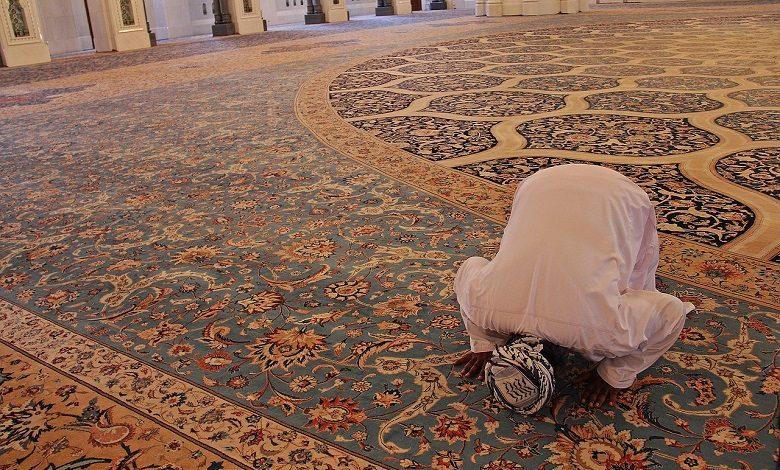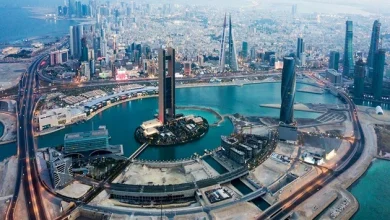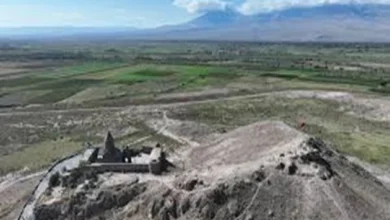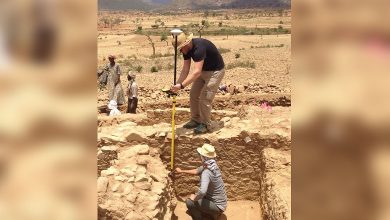From church to Mosque: these European places of worship changed status

On July 24, the old Hagia Sophia in Istanbul will be open to Muslim prayers as a mosque by the decision of President Erdogan. This place of worship is not the first to “change religion” in Europe. Here are some examples.
Places of worship sometimes change not only their owner but also their religion, as will soon be the case with the ancient Byzantine basilica of Saint Sophia in Istanbul.
The building will cease to be a museum and become a mosque for the second time, following a decision by the Turkish authorities. In recent years, several abandoned churches and synagogues in Europe have been ceded to the Muslim community or welcomed Muslims in the name of bringing communities together.
1. A Lutheran church in Berlin
During the confinement due to the Covid-19 pandemic, the Lutheran Church of St. Martha in Berlin offered to help Muslims in Kreuzberg who were deprived of their mosque because of social distancing rules, reports Reuters.
The church hosted Friday prayers at the end of Ramadan, while the Dar Assalam Mosque in Berlin-Neukölln could only accommodate part of the local Muslim community.
“The church saw that the Muslims were suffering […]. They proposed their church so that we could do the Friday prayer. It is a great sign of solidarity in these difficult times. I feel in the house of God,” says Imam Mohamed Taha Sabry, quoted by the media.
2. A synagogue in Marseille
In 2016, the media announced that the Torah synagogue, built in the center of Marseille during the arrival of Jews from Algeria in 1962 and able to accommodate 250 people, had been sold to the Muslim association Al Badr for 400,000 euros.
According to La Provence, this place of worship has been emptying for several years while the Marseilles mosques encountered difficulties in welcoming all the faithful for prayers.
3. A church in Gilly, Belgium
In 2010, 300 Muslims in the Belgian town of Gilly said their Friday prayers in a Christian church for several weeks.
The parish priest of the Saint-Lambert church at Château Mondron, Father Henry Rémy, invited the Muslims to perform collective prayer in his church when the local At-Touba mosque was not available. Deemed not to comply with town planning rules for a place of meetings or activities, the mosque was closed by the decision of the municipality of Charleroi, reports the Journal Essentiel.
For the Quotidien d’Oran, the priest took the opportunity to establish, at his level, sincere dialogue between Muslims and Christians.
4. A chapel in Nantes
The small El Forqane mosque operated from 1984 to 2012 in the old Saint-Christophe chapel located on Quai Malakoff in Nantes. In 1984, the disused chapel was loaned to Muslims on a donation from the diocese.
In 2013, the chapel was demolished as part of the major city project (GPV) of Nantes, which notably provided for the construction of a road on its site.
5. A chapel in Clermont-Ferrand
In Clermont-Ferrand, the Bon Pasteur refuge, a small unoccupied Christian chapel, was a mosque between 1977 and 2011.
The chapel was made available to the local Muslim community free of charge by the congregation of the Sisters of Saint Joseph, who had a building stock for various activities. The church, decorated with stained glass windows and statues, has been adapted to the specificities of Muslim worship.
A large carpet covered the granite floor, the stained glass windows which presented scenes from the Bible were hidden, and the statues were stored in the basement, according to Planet.fr. Nothing has been deleted or removed.
After the construction of a large mosque in Clermont-Ferrand, the small chapel was restored in July 2011. It then became an Orthodox church. The Orthodox community of Clermont-Ferrand would have bought it for 110,000 euros, according to Le Figaro.
6. A chapel in Lille
In Lille, a chapel of Dominican sisters dating from the 1930s became the El-Forqane mosque in 1973 after being loaned free of charge for a period of 20 years by the bishop at the time.
At the end of the loan, in 1993, the bishop issued an ultimatum to the Muslim community: leave or buy the building. With the financial assistance of the Great Mosque of Paris, the Muslim association purchased the chapel, which now has a capacity of around 1,100 places, according to Europe 1.
7. Two churches in Graulhet
In Graulhet, in the Tarn, the Saint-Jean de la Rive church was transformed into a mosque in 1981. It has since been called Al-Mohammadi mosque, and still belongs to the town hall, reports InfoCatho.fr.
In 1982, another disused church in Graulhet was transformed into a Protestant temple. These two examples are symbols of rapprochement between communities, notes FranceInfo.
8. Amsterdam church
The Fatih Camii Mosque in Amsterdam, managed by the Turkish community of the city, was formerly called Saint Ignatius church.
The building built in the 1920s in the heart of Amsterdam, and used as a place of prayer by Catholics until October 1971, was converted into a mosque in 1981, specifies the French site Des Dômes et des Minarets. Modifications were made inside the building to meet the structural requirements of a mosque (direction of Mecca, the Mihrab, women’s prayer hall, etc.).
9. A synagogue in The Hague
The great Wagstraat synagogue in The Hague, built in the 19th century by German Jews, was transformed into a mosque in the early 1980s. In 1975, the Jewish community sold the synagogue to the municipality of The Hague for a symbolic guilder (former Dutch currency unit).
In 1981, the municipality of The Hague sold the building for 1.4 million guilders to the Turkish community, according to Reformatorisch Dagblad. The building is located in Chinatown in The Hague, which was once the Jewish quarter. Outside the old synagogue stand two minarets.
10. Churches and a chapel in the United Kingdom
In the United Kingdom, Camberwell’s Anglican Saint Marks Cathedral, dating from 1879, has been known since 1982 as the “new Peckham mosque”.
In Clitheroe, Lancashire, Saint Peter’s Anglican Church was transformed into a mosque in 2007 following a vote by the city council.
In Manchester, the Didsbury Mosque was initially a Methodist chapel in Albert Park, opened for worship in 1883 and closed in 1962. Later, the chapel became an Islamic center, reports Le Salon Beige.




